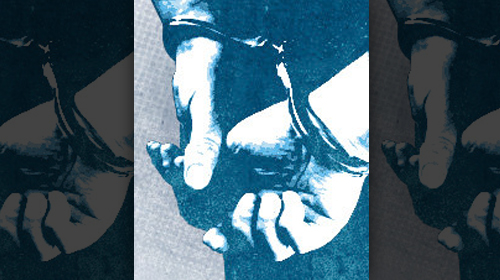
Today, the U.S. has the highest incarceration rate of any country in the world. With over 2.3 million men and women living behind bars, our imprisonment rate is the highest it’s ever been in U.S. history. And yet, our criminal justice system has failed on every count: public safety, fairness and cost-effectiveness. Across the country, the criminal justice reform conversation is heating up. Each week, we feature our some of the most exciting and relevant news in overincarceration discourse that we’ve spotted from the previous week. Check back weekly for our top picks.
Supreme Court Rules that Mandatory Life Without Parole for Juveniles is Unconstitutional
The 5-4 decision does not mean that a child can never be sentenced to life without parole, although the Court strongly suggested that such sentences should be rare. It simply means that the sentencing judge must have the opportunity to consider age and circumstance when handing down a punishment.
Chicago Decriminalizes Marijuana Possession
Starting Aug. 4, police can issue tickets of $250 to $500 for someone caught with 15 grams or less of pot — the equivalent of about 25 cigarette-sized joints. Given that more than 18,000 people are arrested for pot possession in Chicago each year, the new law could generate millions of dollars for the city.
New Jersey Sends Drug Court Bill to Gov. Christie
This week, the Senate approved a bill by a vote of 36-1 that would expand eligibility for the state’s drug court program and mandate that nonviolent, drug-dependent offenders receive treatment rather than prison time. The bill now awaits Gov. Christie’s signature. He has vocally supported the measure in recent months, and is expected to approve it.
New Ohio Law Will Remove Barriers to Employment for Former Prisoners
This week, Ohio Gov. John Kasich signed Senate Bill 337, deemed the “collateral sanctions” bill. The measure will make it easier for people getting out of prison to get find employment by allowing a person to seal one felony and one misdemeanor conviction or two misdemeanor convictions, but not two felony convictions. Judges will be able to award certificates to remove job barriers and protect employers from potential liability. The bipartisan bill was introduced by Democratic Sen. Shirley Smith of Cleveland and Republican Sen. Bill Seitz of Cincinnati, and passed the House unanimously.
New Tennessee Law Will Allow Some Former Prisoners to Clear Their Records
For the first time in Tennessee, some one-time, nonviolent offenders will have the right to expunge their felony convictions, forever erasing those criminal records. A bill signed into law last month, and effective July 1, allows some offenders to expunge a select set of felonies and misdemeanors for a fee, after meeting all court requirements. The law applies only to offenders with a single conviction. The new law is expected to remove a critical barrier to finding employment for 60,000 Tennesseans a year.
Learn more about overincarceration: Sign up for breaking news alerts, follow us on Twitter, and like us on Facebook.


